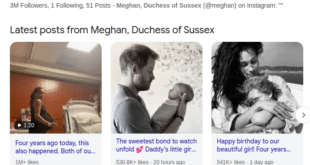Brands Take a Stand
In a resounding display of corporate responsibility, several major companies have severed ties with the video platform Rumble following the emergence of serious allegations against comedian Russell Brand. Burger King, Asos, the Barbican, and HelloFresh, among others, have pulled their advertisements from the platform, demonstrating a commitment to upholding ethical standards in their advertising partnerships.
YouTube’s Monetary Suspension
While YouTube swiftly moved to suspend Brand’s ability to generate revenue on their platform, Rumble has taken a markedly different stance. This decision raises questions about platforms’ varying approaches to accountability in the face of serious allegations. Brand’s response, attributing these actions to the “online safety bill,” suggests a broader discourse surrounding internet regulation and individual accountability.
Rumble’s Defiant Response
Rumble’s staunch refusal to conform to what it perceives as external pressure sets it apart in the current digital landscape. The platform’s public statement characterizes parliamentary concerns as “deeply inappropriate” and defends its dedication to an internet where diverse ideas can flourish without censorship. Rumble asserts that the allegations against Brand should not be conflated with his content on their platform, signaling a commitment to impartiality.
The Allegations and Brand’s Denial
The serious allegations against Russell Brand have sent shockwaves through the media landscape. Accusations of r*pe, SA, and emotional abuse spanning from 2006 to 2013 have been made public after a thorough investigation by reputable news outlets. Brand has vehemently denied these claims, emphasizing the need for due process and the presumption of innocence.
Financial Implications for Brand
The financial fallout for Russell Brand has been substantial. Estimates suggest that he earned £27,000 monthly from his Rumble channel and approximately £1 million annually from YouTube prior to the suspension of ads. Additionally, his literary representation, tour promoter, and book publisher have all severed ties, underscoring the gravity of the allegations.
Rumble’s Ideological Standpoint
Rumble, founded in 2013, brands itself as “immune to cancel culture” and aims to restore the internet to its original principles of openness and freedom of expression. Chris Pavlovski, the platform’s CEO, describes it as a neutral space. The backing of conservative figures like Peter Thiel and Dan Bongino, and its predominantly Republican user base, underscore the platform’s ideological positioning.
Rumble’s Meteoric Rise
Rumble’s meteoric rise in popularity, particularly following the 2020 presidential election, highlights its potential influence in shaping online discourse. With a reported 78 million active users globally as of 2022, Rumble has firmly established itself as a major player in the digital content landscape.
Navigating Accountability in the Digital Age
The Russell Brand controversy and the ensuing responses from platforms and advertisers reflect a broader conversation about accountability in the digital age. As the lines between free speech, individual responsibility, and platform moderation blur, society must grapple with the complexities of balancing openness with safeguarding against potential harm.
The Russell Brand controversy serves as a catalyst for examining the intricate interplay between freedom of expression, corporate responsibility, and individual accountability within the digital realm. The actions of advertisers, platforms, and regulatory bodies in response to these allegations set a precedent for how such cases will be handled in the future.
 Reply Girl Commentary on the news and other content
Reply Girl Commentary on the news and other content

